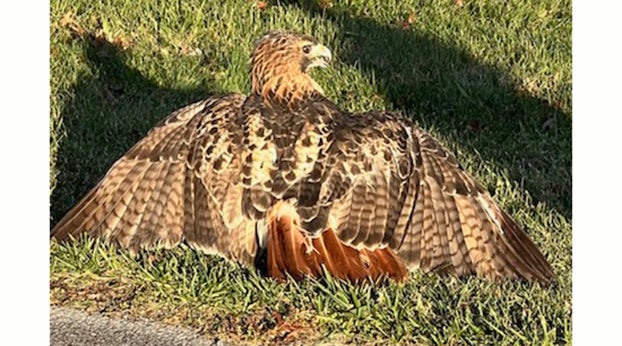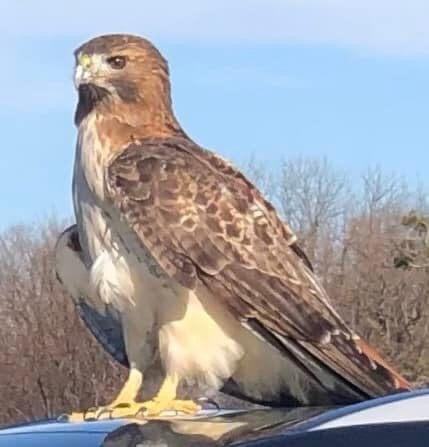Boyle magistrate wants to see federal law changed;
Ellis calls bird regulations ‘ill-conceived’
Published 6:30 am Friday, December 24, 2021

- This Red-Tailed Hawk was found injured in Danville. Boyle County Magistrate Tom Ellis now wants to see federal laws limiting the care that can be provided to some birds to be changed to allow any veterinarian to care for an injured bird. - Photo submitted
By Tom Ellis
Boyle County Magistrate
Monday afternoon, a Red-Tailed Hawk was injured in Danville. Members of the local United Methodist Church witnessed the unfortunate event.
Contacting me as both a church member and Boyle County magistrate, they asked me to come in and pursue immediate care for this magnificent hawk.
On my arrival, our cautious and heavily gloved church member Steve Sleeper had caught and carefully placed the hawk in a large cardboard box.

After being found injured in Danville, this Red-Tailed Hawk is now eating and reportedly doing well. – Photo submitted
We loaded the hawk in my truck, setting off to a local veterinarian clinic. That’s when we learned of a stunning federal regulation. Notwithstanding this wonderful raptor’s pain and anxiety, any veterinarian not holding a specific protected bird license cannot render even the slightest emergency care.
The next morning we were fortunate to locate an individual familiar with federal regulations on hawks, owls, and other raptors.
He was able to get the injured hawk taken to the Broadbent Bird Sanctuary in Irvington in Breckinridge County, a facility dedicated to rehabilitating raptors and releasing them back into the wild. Initial reports are good, and the hawk is eating and doing well.
Regulations that prohibit even the most limited care to stabilize injured raptors, sedate their pain and assure a potentially life-saving opportunity are ill-conceived. Without even delving into any bureaucratic rationale, the lack of immediate, skilled medical intervention is simply inhumane.
Along with Congressman Bret Guthrie’s Kentucky-based staff, I’m pursuing the process required to change the federal protected birds regulations. All willing veterinarians must have the liberty to be “held harmless” for working to save injured hawks and owls suffering from accidental injury.
Hopefully, my column will create a groundswell of action by Americans from all walks of life, and passionate about God’s wonderful creatures.
Any and all veterinarians across the United States who are willing to aide ailing federally protected birds must be allowed to do so, without being subjected to consequences for treating them.






